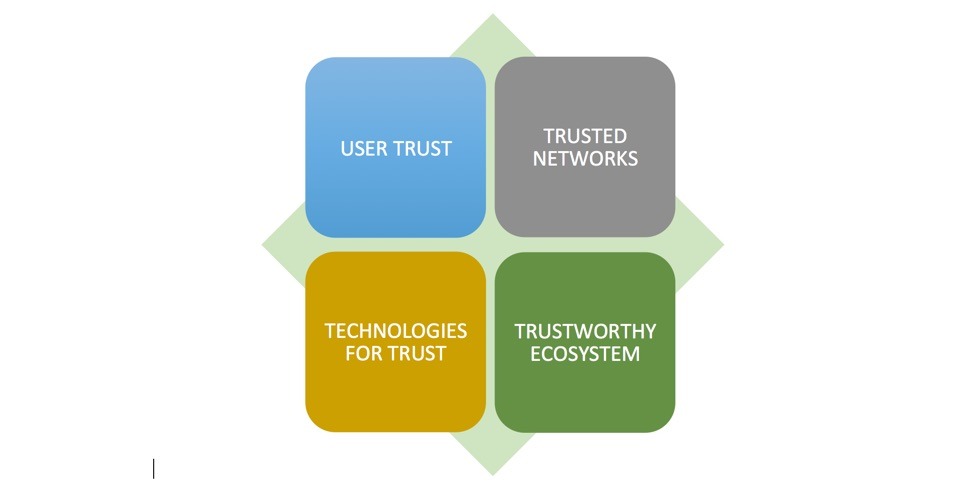This week, at the OECD Ministerial Meeting on the Digital Economy, Kathy Brown, our President and CEO, introduced the “beta version” of the Internet Society’s policy framework for an open and trusted Internet.
Large scale data breaches, uncertainties about how data is being used, cybercrime, surveillance and other online threats are eroding users’ trust and affecting how they use the Internet. It is also affecting the way governments view the Internet, and the policies they make about Internet access, security and use.
Trust is a key ingredient for a sustainable, evolving, global Internet. Without trust, the Internet becomes a battleground of competing interests, users feel vulnerable and marginalized, and the global network of networks crumbles, leaving behind a fragmented Internet with lost opportunities.
We believe the Internet needs a solid foundation in trust to achieve its full potential. Therefore, as part of our trust agenda in our 2016 Action Plan, we developed this “beta version” framework to help advance trust in the Internet.
Establishing, and then maintaining, trust in an open environment is challenging. An open system is constantly changing, it’s unpredictable, and bad actors can come in. But, it is also an inspiring goal. A goal that seems to be rapidly gaining traction across the world. Indeed, one of themes of the OECD Ministerial Meeting is Trust in the Digital Economy.
Our policy framework aims to provide a recipe for addressing the complexities of trust in an open environment such as the Internet. It describes four interrelated dimensions of trust to consider when developing policies for the Internet:
- User trust: How and why Internet users – including government, private sector and citizens – trust the Internet, and how to build that trust;
- Technologies for trust: The technical building blocks for establishing and maintaining trusted networks, applications and services;
- Trusted networks: The Internet’s strength is that it is an ever-evolving collection of interconnected networks with distributed ownership and control. Trust is the glue that keeps networks connected and exchanging data;
- Trustworthy ecosystem: How the Internet is governed and how it deals with Internet issues;
It also provides some principles to help build a trusted Internet.
We offer this framework as a tool to help those who are involved in developing policies for the Internet gain a better understanding of the different flavours of trust and how they interact. It is not enough to focus on policies that support user trust. We also need good policies to support the technologies and networks that enable trusted communications, and a trustworthy ecosystem. This framework is also intended to start a discussion about how we can work together to build an open and trusted Internet.
Trust is a constantly evolving notion, so this is a living document. There are other aspects and principles that could be included in this framework, but we decided to release this beta version with what we currently see as being the most important elements for trust in the Internet.
We invite you to read our framework and send your comments to trust@isoc.org.

